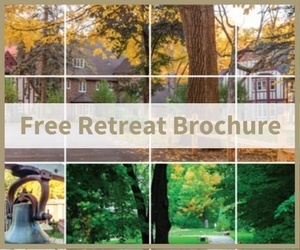
Every morning at The Retreat I look at the in-house email. It tells me who has the day off, the lunch menu for the day, and any special events. It tells the number of admissions and discharges at The Retreat, and how many guests we have. It also lists the number of openings in the six sober houses that The Retreat owns and operates in Saint Paul. Usually the number of openings is “0”.
Our staff plans so that we don’t offer sober house spaces that aren’t going to be available. We manage people’s expectations and talk about the other fine sober houses that are in Saint Paul. I am not surprised to find that by 3 p.m., there are frequently openings. What has happened? Usually, romance has happened, or, more accurately, sex.Part of physical recovery is feeling newly sexual, and even though we ask people in our sober houses to avoid dating for the six months of their commitment, many people find a strong sexual attraction to another person in recovery and take action. Then, when the relationship goes wrong, they relapse, and have to leave the sober house. When people look at me in surprise and ask how this could happen, I respond that “recovery is not sexually transmitted.”
There are other ways that our sexual feelings interfere with our recovery. We confuse love and sex, getting them wrapped up in each other. If a newly sober person has a partner at home who is even a normal drinker, much less a heavy drinker, and is unwilling to abstain from alcohol or drugs in order to support the newly sober person, I often suggest that our newly sober guest not go home. I suggest either a sober house or an alternative residence where no one drinks or drugs. This suggestion is rarely carried out. The usual explanation is “But they love me!” The guest who cries “they love me!” is thinking about physical love, intimacy, sex, an antidote to loneliness. When I think love, I’m thinking about a partner who will do anything, who will go to any lengths to help our guest survive this fatal disease.
When I got sober, I asked my wife, Priscilla, if she would consider no longer drinking at all, and not having any alcohol in our house. She said “Why? I don’t have a drinking problem?” I then went on to outline all the trouble that alcohol had brought to our lives. She chose to never drink again and never allow alcohol in our home. To us, love is not just sex, it is a set of behaviors that mean we are fully committed to the well-being of the other person.
Even newly sober people who have heard this and understand this are at risk if they start a sexual relationship right away in recovery with another newly sober person. The reason is that a new sexual relationship in sobriety feels so good, and is so much fun, that it distracts from the less attractive work of doing the Twelve Steps with a sponsor on a daily basis.
Our job, for the first year of sobriety, is building our sober life, with sobriety itself as our top priority. That is why it has been an informal suggestion of A.A. for a long time that we not start a new relationship for the first one year of sobriety. Only one thing can be “number one”.
Even today, at 28 years sober, I believe that I have to make my sobriety “number one”. It is ahead of God, my wife, and my job. That sounds harsh, but, think about it: I’m no use to God if I’m drunk. The Retreat can’t keep me if I’m drunk. It would be a horrible betrayal of Priscilla, myself, our marriage, and our children for me to drink. So, sobriety has to be #1 all the time.
John MacDougall is the Spiritual Care Coordinator at The Retreat
His book, “Being Sober and Becoming Happy” is available from Amazon.com.





